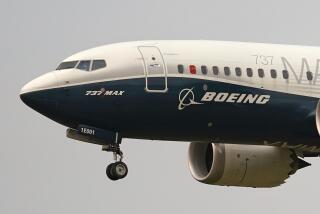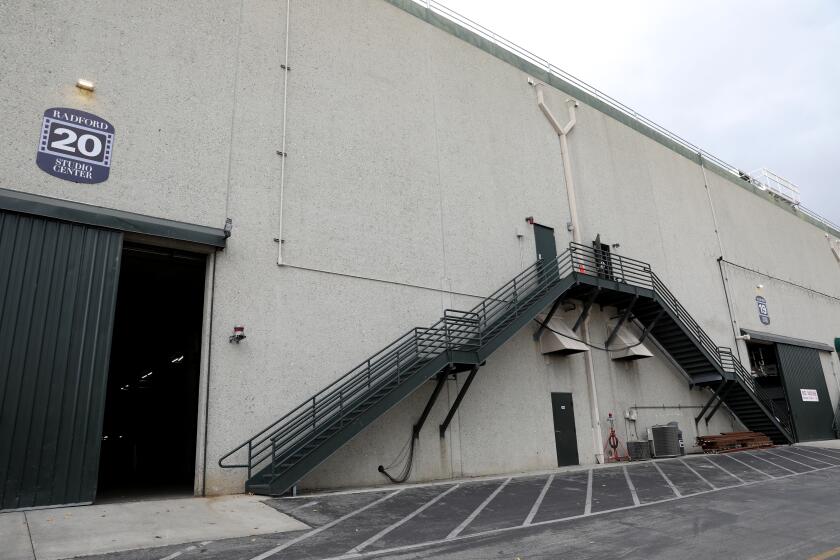Missile Power Key to Merger Review
Whether too much of America’s missile technology and production will end up with Raytheon when it acquires longtime rival Hughes Aircraft will be a key issue that U.S. antitrust regulators examine in the proposed $9.5 billion deal, analysts said Friday.
The deal would merge the two leading producers of tactical missiles, making Raytheon the sole builder of such missiles as the Amraam, Standard and Tomahawk. In addition, only last week, Raytheon agreed to buy the defense operations of Texas Instruments Inc., another major missile maker.
The Raytheon-Hughes merger would “create so much concentration that federal authorities are likely to scrutinize it closely,” said Loren Thompson, a defense analyst with the Alexis DeToqueville Institute, a Washington think tank.
Four of the top six missile producers that operated separately as recently as 1990--Hughes, Raytheon, Texas Instruments and General Dynamics--would have their missile divisions melded into a single unit under this merger.
“Whenever you get this degree of market concentration, you run the risk of having a company with pricing control of the entire market,” Thompson said.
Even so, several observers predicted that the Raytheon deal would not be scuttled, nor severely altered, on antitrust grounds. Their reasoning: The Pentagon itself has encouraged defense mergers in order to eliminate excess production capacity left from the Cold War.
Indeed, the nation’s other major missile producers have already merged or are in the process of doing so. Lockheed Martin Corp. bought Loral Corp.’s defense operations last year. Boeing Co. recently agreed to buy McDonnell Douglas Corp.--maker of the Navy’s Harpoon missile--and Rockwell International’s defense group, maker of laser-guided bombs.
As a result, “the key issue” in the Raytheon-Hughes Aircraft review will be “the extent to which Lockheed Martin and Boeing/McDonnell Douglas/Rockwell are regarded as credible alternative suppliers for the air-to-air missiles” now built by Raytheon and Hughes, said William Kovacic, a professor and antitrust specialist at George Mason University School of Law in Arlington, Va.
But Lawrence Korb of the Brookings Institution, a former assistant secretary of defense from 1981 to 1985, said, “I don’t think [the merger] will be challenged. The policy of the Clinton administration is to encourage . . . these mergers.”
The Pentagon, of course, is buying fewer missiles and so is unable to support as many companies. U.S. spending for missiles, after peaking at $14.2 billion in 1990, has plummeted to $5.3 billion this year, according to the Aerospace Industries Assn., a trade group.
With the defense buildup in the 1980s, the Pentagon set up multiple sources of production. But in the post-Cold War era, “they can’t afford to keep two production lines open,” said Steven Zaloga, an analyst with the research firm Teal Group in Fairfax, Va.
But the companies themselves also predicted that the deal will go through.
Hughes Chairman C. Michael Armstrong noted that both Raytheon and Hughes lost a contest last year to build the Air Force’s Joint Air-to-Surface Standoff Missile. Instead, Lockheed Martin and McDonnell Douglas won the $3-billion program.
Over the years, however, Hughes and Raytheon were often fierce competitors. That contest was to build a new missile called the AIM-9X, the successor to the Pentagon’s Sidewinder air-to-air missile. Hughes last month defeated Raytheon for the AIM-9X contract, which could be worth $5 billion over the next two decades. It’s the loss of such competition that will give antitrust officials pause as they examine the merger, analysts said.
The Justice Department and the Federal Trade Commission, which have responsibility for antitrust issues, have not decided which agency will review the Raytheon deal, a Justice Department spokeswoman said Friday.
Peltz reported from Los Angeles and Rosenblatt from Washington.
For addition information and discussion on the Raytheon/Hughes deal, see the Times Web site at https://www.latimes.com/HOME/ BUSINESS/AEROSPACE/
More to Read
Inside the business of entertainment
The Wide Shot brings you news, analysis and insights on everything from streaming wars to production — and what it all means for the future.
You may occasionally receive promotional content from the Los Angeles Times.







